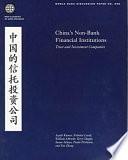Strategies and Policies for the Developing World
Access to broadband connectivity is a country s passport to the global information society and knowledge economy the future. However, the adoption and use of broadband technology today remains extremely uneven and threatens to create a new digital divide. At the end of 2009, countries in North America and the European Union accounted for more than 50 percent of the world s 1 billion fixed and mobile broadband subscriptions, but South Asia and Sub-Saharan Africa together accounted for less than 3 percent. The experience with mobile telephony though shows the potential for growth in the information and communication technology sector in developing countries. Almost 75 percent of the world s mobile telephone subscriptions are in low- and middle-income countries, which have also promoted exciting innovations and realized significant economic development benefits. In fact, a growing number of countries are seeking to spur broadband development. To aid governments as they design their own programs, this volume offers examples and ideas from some of the most successful broadband markets: particularly the Republic of Korea, but also Finland, France, Japan, Sweden, the United Kingdom, and the United States. 'Building Broadband' does not suggest a universal solution but rather provides a long list of policies and programs organized within a strategic framework that allows solutions tailored to country circumstances. The essential building blocks identified are useful everywhere because they focus on improving incentives and the climate for private investment. This is a policy that even countries with very limited resources will be able to exploit.
ECO-AUDIT Environmental Benefits Statement The World Bank is committed to ... as pillar of demand facilitation, 105, 106t actual versus advertised broadband speeds, 20b ADSL (asymmetric digital subscriber line), 23, 37, 44–45, ...









